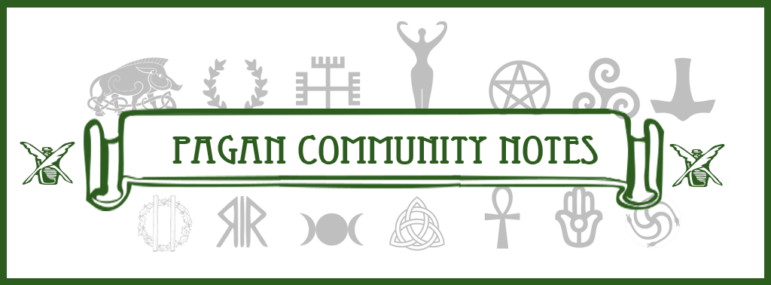
 TWH- Today, many modern Pagans and polytheists celebrate the fire festival of Imbolc, sacred to the goddess Brigid, patroness of poets, healers, and smiths. The modern celebration is often held on Feb. 1 or Feb. 2. Because of practical concerns including work schedules, many groups hold their rituals and events throughout the week and weekend.
TWH- Today, many modern Pagans and polytheists celebrate the fire festival of Imbolc, sacred to the goddess Brigid, patroness of poets, healers, and smiths. The modern celebration is often held on Feb. 1 or Feb. 2. Because of practical concerns including work schedules, many groups hold their rituals and events throughout the week and weekend.
Similarly, Feb. 1 marked the feast day of Saint Brigid of Ireland, the patron saint of poets, dairymaids, blacksmiths, healers, cattle, fugitives, Irish nuns, midwives, and newborn babies. In Kildare, Ireland’s town square, a perpetual flame is kept lit and housed in a statue that pays homage to Brigid.
This Monday, Ireland celebrates the new bank holiday, St. Brigid’s Day or Imbolc, which symbolizes the beginning of spring. The holiday was declared official two years ago by Taoiseach (then Tánaiste) Leo Varadkar saying, “The first Monday in February will be a new public holiday, Imbolc or Saint Brigid’s Day.” The Taoiseach added, “It’s the first public holiday to be named after a woman, also a Christian saint and marks the traditional start of the Celtic new year” and that public workers will have “the day off and full pay for the day.”
Ralph Whitlock wrote in 1982 (Guardian Publication ltd), “Outside the Roman Catholic Church, Candlemas Day, February 2, now has little significance in Britain. In the ecclesiastical calendar, it is the feast of the Purification of the Virgin Mary, referring to the ancient custom which required a mother to offer candles on her first visit to church after childbirth. Actually, it supersedes a much older pagan festival, the feast of Imbolc…. A Celtic quarter-day in pre-Christian Britain, Imbolc belongs to a pastoral calendar which preceded the agricultural one with its quarterdays on Lady Day, Midsummer, Michaelmas, and Christmas. Imbolc was important in marking the traditional beginning of the lambing season. Although the name is largely forgotten, the date retains some of its old significance for farming communities, as the time when the earliest lambs are born.”
Whitlock noted, “The first week of February, when some of the worst winter weather can be expected, may seem a particularly inclement season for starting lambing, but there are good reasons. Lambs born then are just the right age in April and May to make full use of the spring grass… What is even more important to the sheep farmer, they are ready for marketing, as fat lambs, in early July, when prices are at their peak. So February lambs are worth the extra trouble.”
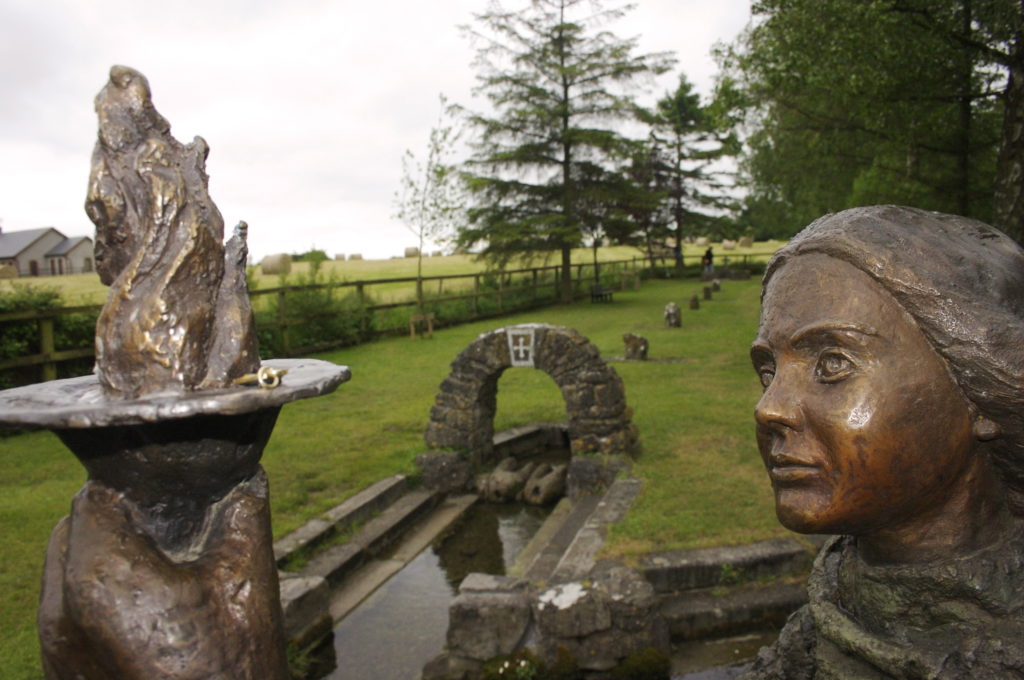
Brigid’s Well – Kildare [Photo: courtesy S. Bustamonte 2006]
The goddess Brigantia of the Celtic (Gallo-Roman and Romano-British) practice of Late Antiquity was venerated at Imbolc. Towns bear her name such as Brigetio in Hungary, Briançonnet and Briançon in France, Bragança Portugal, and the cities of cities of A Coruña and Betanzos in Celtiberian Spain.
The late Alexei Kondratiev wrote, “The fire of Brigantia was both the fire of fertility with the earth and the fire of the sun, which gradually gained in strength as the days lengthened. The lighting of bonfires or candles was an expression of magical encouragement to the sun, as well as a sign of rejoicing at the more abundant light. Traditionally, Imbolc marked the point after which it would no longer be necessary to carry a candle when going out to do early morning work.” – The Apple Branch: A Path to Celtic Ritual
The vigil from February 1 to 2 also marks the Feast of Oyá in some African traditional religions in the diaspora including Lucumí and Ifá. Oyá is the orisha of flux and change. She rules winds, lighting, and violent storms. She is the first and last breath and marks death and rebirth. She lives at the cemetery gate and through this post communicates with the ancestors. She also rules the marketplace of change.
February 2 is also the Feast of Maman Brigitte. Last year, author Lilith Dorsey told TWH, “This is one of my absolute favorite times of year. I get the chance to celebrate the ‘fiery one,’ the Goddess Brigit.”
Dorsey said, “[Maman Brigette] is a powerful Lwa of the Dead, a foremother dedicated to justice and wisdom. My own spiritual house is dedicated to her and me and my godchildren take special care to honor her at this time.”
There are many other notable observances held during these first few days of February. For example, in some Celtic reconstructionist traditions, this is a time to honor Cú Chulainn’s three-day combat with his foster brother Fer Diad. According to the chronology in the Táin Bó Cúailnge, the epic battle happened during these dark mid-winter days. In the Urglaawe Heathen tradition, Feb. 2 marks the beginning of the twelve-day observance of Entschtanning (the emergence). It is a time to clean out hearths and honor feminine spirits and female ancestors.
Additionally, the Shinto Festival of Setsubun is held on Feb. 3. This holiday is more commonly known as the Japanese bean-throwing festival. Around Japan and the world, observers throw soybeans in their homes to drive away the evil spirits of winter while others visit their local Buddhist or Shinto temples and toss soybeans there. Setsubun is translated as “seasonal division” and is considered to be the final day of winter on the Shinto calendar. Hadaka Matsuri, translated as the “Naked Festival” in English, is a yearly traditional Japanese festival with changes this year as we reported, Changes in annual Shinto festivals: Japan allows women to participate, men keep cloths on.
This seasonal theme is carried through in many secular and modern religious observances, such as EarthSpirit Community’s Feast of Lights and, of course, Groundhog Day. We will hear Punxsutawney Phil’s prognostications about Winter’s end tomorrow.
In the Southern Hemisphere, modern Pagans are beginning their harvest season, celebrating Lammas, Lughnasadh, and other similar festivals. Autumn will soon be at their doorstep.
University lecturer, psychologist, and Wiccan high priestess Vivianne Crowley wrote, “As Pagans, we honor our warrior goddesses, and we can remind ourselves that over time Brigantia became fused with wise Minerva. To ride safely through the changes to come, we must hold true to ideals and values in the face of all that would pressurize against them. We must honour science, history, and fact. We must become politically active to influence those in power to exercise their responsibilities wisely and well. We must support and find strength and inspiration from one another, bonding ever closer as the upheavals come. Sometimes bad changes can bring new light and dawning, as we realize the value of what is all too easily lost. Let the light of strength and wisdom shine in the darkness on Brigid, Bride, Brigantia’s day.”
Circle Sanctuary shared with The Wild Hunt a roundup of materials and resources for celebrating Imbolc.

Circle Sanctuary logo
Circle Sanctuary also brought to our attention Brigid 1500: Celebrating a Woman, a Life, a Legacy a comprehensive program aimed at celebrating and commemorating the life and legacy of St. Brigid. The site says that “its main objective is to create a meaningful cultural and societal legacy that resonates with a diverse, contemporary audience. This program engages communities by sharing the story and heritage of St. Brigid, fostering a tangible connection to the past through events and initiatives that maintain ongoing significance…Brigid 1500 also aligns with the values championed by St. Brigid, including faith, spirituality, biodiversity, sustainability, arts and culture, social justice, peace, hospitality, and education. The program features a variety of events, from festivals and concerts to art commissions and craft workshops, along with a school program designed to solidify St. Brigid’s lasting legacy.”
Circle Sanctuary also shared a link to the Finding Brigid documentary. The video is only available directly from YouTube.
![]()
The Wild Hunt wishes our readers many blessings this holiday! Despite the challenges in our world at this moment, may you have a moment to honor the growing or waning light wherever the sun shines on you.
![]()
 The beginning of February also marks the start of Black History Month in the U.S., a national and federally recognized celebration of the many contributions that African Americans have made and continue to make to the country.
The beginning of February also marks the start of Black History Month in the U.S., a national and federally recognized celebration of the many contributions that African Americans have made and continue to make to the country.
The idea of national recognition and celebration of the works of African Americans is largely attributed to being conceived and developed by Carter G. Woodson in 1926 as Negro History Week.
In 1915, Woodson founded the Association for the Study of Negro Life and History and launched the following year The Journal of African American History to help preserve the voices and stories of Black people and share them with others. He chose the second week in February to honor two men whose contributions he felt had significantly benefited the independence of Black people – Fredrick Douglass and Abraham Lincoln, as both celebrated birthdays that week, February 14, and 12, respectively.
While Woodson would not be alive to experience Black History Month as it is known today, his work paved the way for the month-long observation.
President Gerald Ford extended the celebration of culture and recognition of the contributions of Black Americans to a full month in 1976.
Black History Month is now observed in Canada, Ireland, the Netherlands, and the United Kingdom. Ireland, the Netherlands, and the United Kingdom observe it in October.
There are many resources available for learning about Black culture, a good starting point might be the Smithsonian’s National Museum of African American History and Culture which offers a variety of programming online that celebrates, educates, and highlights the many achievements of Black Americans.
The Public Broadcasting Service (PBS) is having a Block Party and everyone is invited!
The broadcast released an extensive list of viewing opportunities in honor of Black History Month.
![]()
The Wild Hunt is grateful for the recent support.
The Wild Hunt is very grateful to our readers for your recent financial support and amazing words of encouragement. We remain one of the most widely-read news sources within modern Paganism, and our reporters and columnists remain dedicated to a vision of journalism for and about our family of faiths.
As a reminder, this is the type of story you only see here. This is how to help:
Tax Deductible Donation | PayPal Donations | Join our Patreon
You can also help us by sharing this message on your social media.
As always, thank you for your support of The Wild Hunt!
![]()
Do you have news to share with our community?
Announcements? Elevations? Events?
Let us know at pcn@wildhunt.org.
![]()
Happening this Weekend!
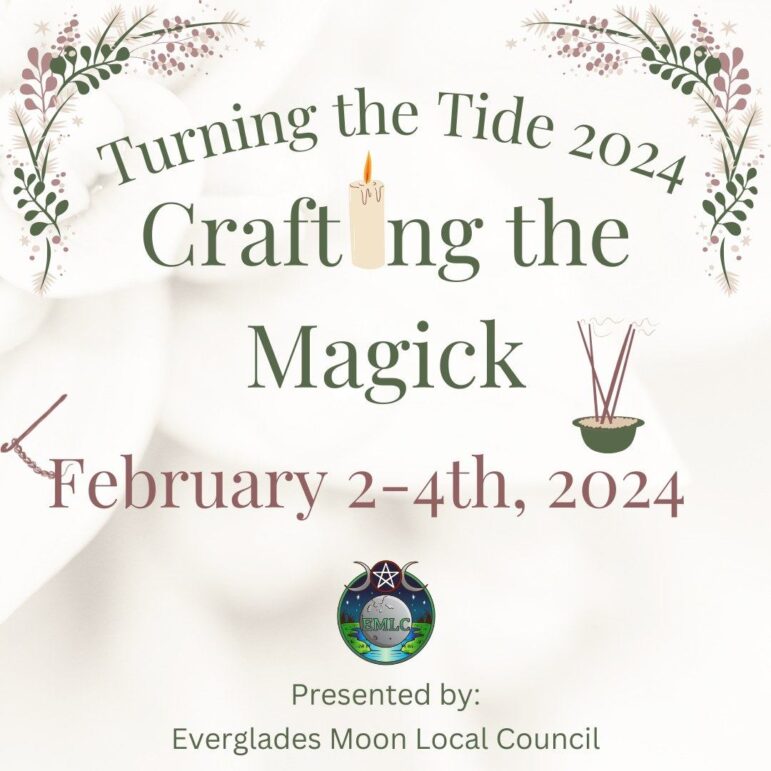 Turning the Tide 17: “Crafting the Magick” Festival is happening the weekend of February 2nd – 4th, 2024. Have you reserved your spot yet? Come join Everglades Moon Local Council as we celebrate our 17th year hosting Turning the Tide. This wonderful little festival happens yearly in Northern Miami-Dade County and is full of great workshops like learning to plarn (plastic yarn) and the basics of wood burning, rituals including ou Main Ritual on Saturday night, and events like a concert by Aerik Arkadian and Potluck Dinner on Saturday. Want to join us? Go to Turning the Tide 17 “Crafting the Magick” Reservation Form and We invite you to reserve your spot today.
Turning the Tide 17: “Crafting the Magick” Festival is happening the weekend of February 2nd – 4th, 2024. Have you reserved your spot yet? Come join Everglades Moon Local Council as we celebrate our 17th year hosting Turning the Tide. This wonderful little festival happens yearly in Northern Miami-Dade County and is full of great workshops like learning to plarn (plastic yarn) and the basics of wood burning, rituals including ou Main Ritual on Saturday night, and events like a concert by Aerik Arkadian and Potluck Dinner on Saturday. Want to join us? Go to Turning the Tide 17 “Crafting the Magick” Reservation Form and We invite you to reserve your spot today.
![]()
Upcoming Events
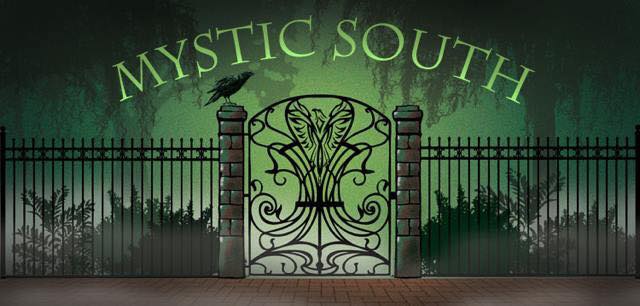 The Mystic South Conference announced that the sixth annual event will take place July 26-28, 2024! Mystic South is filled with workshops, educational abstract presentations, rituals, community building, and much more. With the backdrop of the grand city of Atlanta, be a part of our celebration of the diversity of the peoples and religious practices, both past and present, that make up the Southen US region.
The Mystic South Conference announced that the sixth annual event will take place July 26-28, 2024! Mystic South is filled with workshops, educational abstract presentations, rituals, community building, and much more. With the backdrop of the grand city of Atlanta, be a part of our celebration of the diversity of the peoples and religious practices, both past and present, that make up the Southen US region.
The conference also announced that their Early Bird tickets are on sale. Tickets are $135 until February 29, 2024 (Yup, it’s a leap year!) get them now and, get some for your friends, your neighbors, or just some random person you met on the street! The clock is ticking, lock in savings today!
![]()
 Imagine being in a family of marvels – an aunt who discovered DNA, a nephew who can fly, a cousin who can swim as fast as Olympic swimmers, and more. It’s real! Science shows that all life on Earth is our literal family – and that connection fills me with joy and awe. It also spurs me to action. Our Earth is my body as much as my arm or leg, making climate change a direct threat to so much that I love. Join me on February 12th, discovering the biology which connects us all – including all mammals, all animals, and all life on Earth! The meeting will be hosted on Zoom and facilitated by a member of our Action Team.
Imagine being in a family of marvels – an aunt who discovered DNA, a nephew who can fly, a cousin who can swim as fast as Olympic swimmers, and more. It’s real! Science shows that all life on Earth is our literal family – and that connection fills me with joy and awe. It also spurs me to action. Our Earth is my body as much as my arm or leg, making climate change a direct threat to so much that I love. Join me on February 12th, discovering the biology which connects us all – including all mammals, all animals, and all life on Earth! The meeting will be hosted on Zoom and facilitated by a member of our Action Team.
Join Zoom Meeting: or, open the Zoom app and enter the Meeting ID and Passcode:
Meeting ID: 890 3027 2698, Passcode: CCL
![]()
Book Announcement
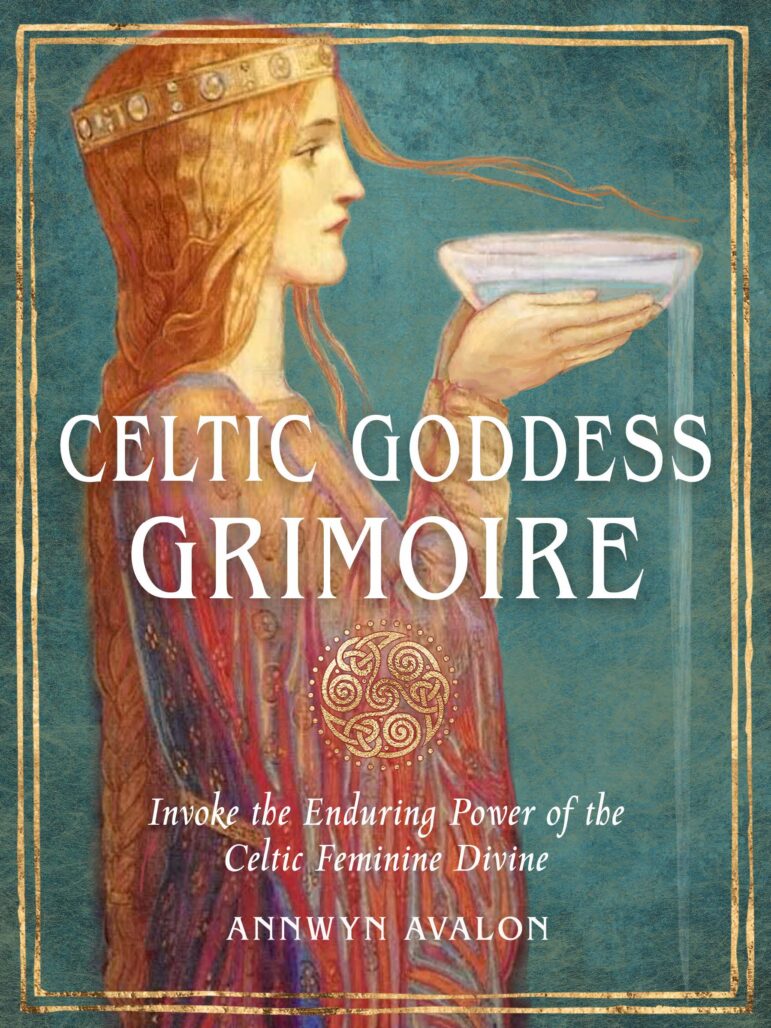 RedWheel/Weiser announced the publication of the Celtic Goddesses Grimoire by Annwyn Avalon, a water witch, a water priestess, and the founder of Triskele Rose Witchcraft, an Avalonian witchcraft tradition.
RedWheel/Weiser announced the publication of the Celtic Goddesses Grimoire by Annwyn Avalon, a water witch, a water priestess, and the founder of Triskele Rose Witchcraft, an Avalonian witchcraft tradition.
The Celtic Goddesses Grimoire celebrates feminine divinities from across Celtic Europe, a wide territory that historically once included what is now Ireland, Scotland, Wales, England, and Brittany. Within these pages, you will meet great goddesses such as Brigid, the Morrigan, Sulis, Rosmerta, Elen of the Ways, and Rhiannon, as well as faery women like Melusine and Morgan Le Fae. The book explores the identity of King Arthur’s Lady of the Lake, as well as other Lake Ladies. The book shines a spotlight on the most prominent Celtic female divinities but also includes a section devoted to lesser-known goddesses of the Celtic world, such as the mysterious Nehalennia, who was nearly lost before her shrine was recovered from the depths of the North Sea.
The book will be available in March 2024.
![]()
Tarot of the Week by Star Bustamonte
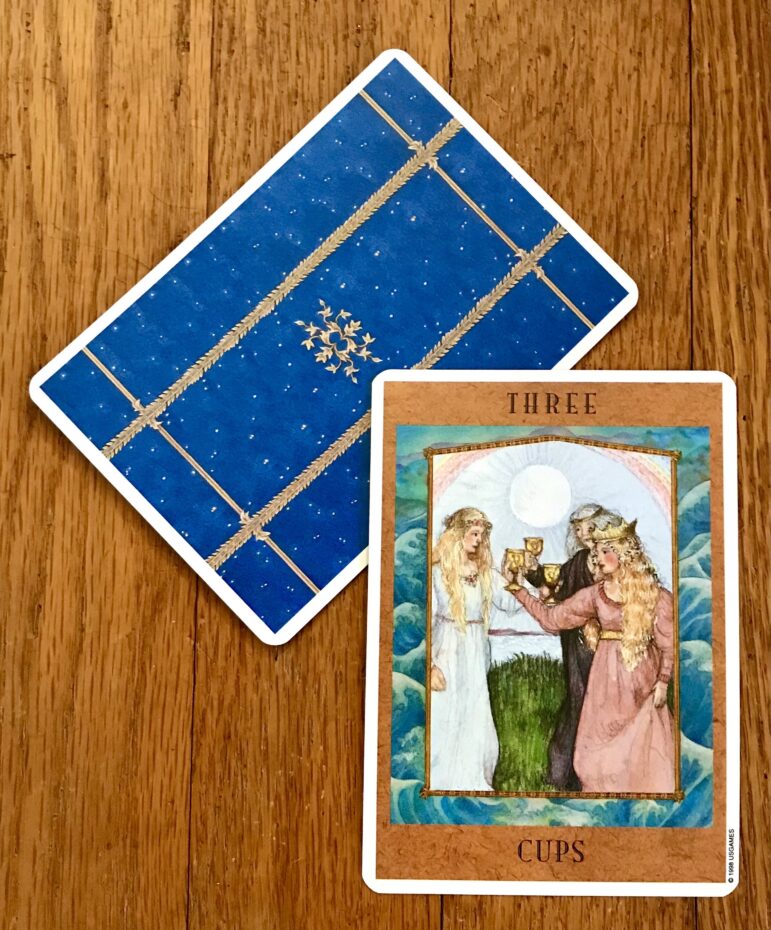 Deck: The Goddess Tarot, by Kris Waldherr, published by U.S. Games Systems, Inc.
Deck: The Goddess Tarot, by Kris Waldherr, published by U.S. Games Systems, Inc.
Card: Three (3) of Cups
The next seven days are likely to offer cause to celebrate whether it be a preeminent event or simply recognizing the small triumphs and joy that can be found in the cycle of everyday life. There is also an emphasis on creativity, collaboration, and the close relationships that embody jubilance.
Contrarily, overindulgence–be it celebrating, socializing, or even working–is liable to have negative impacts. Be mindful that sometimes a step back is needed but not so much as to result in isolation.
The Wild Hunt is not responsible for links to external content.
To join a conversation on this post:
Visit our The Wild Hunt subreddit! Point your favorite browser to https://www.reddit.com/r/The_Wild_Hunt_News/, then click “JOIN”. Make sure to click the bell, too, to be notified of new articles posted to our subreddit.